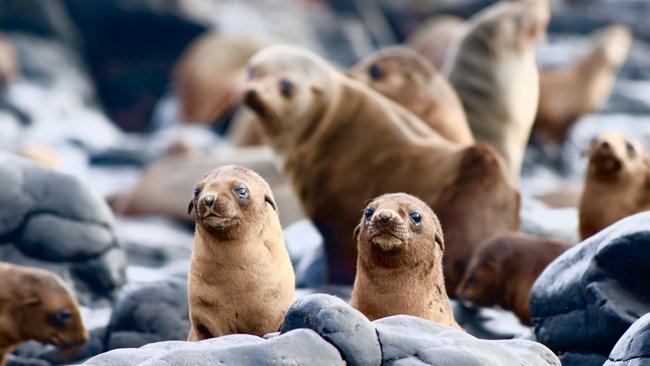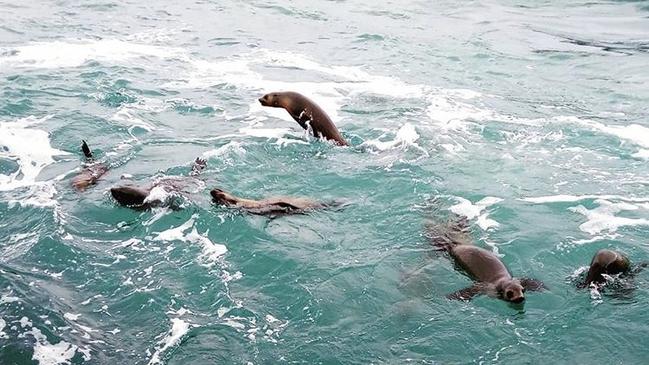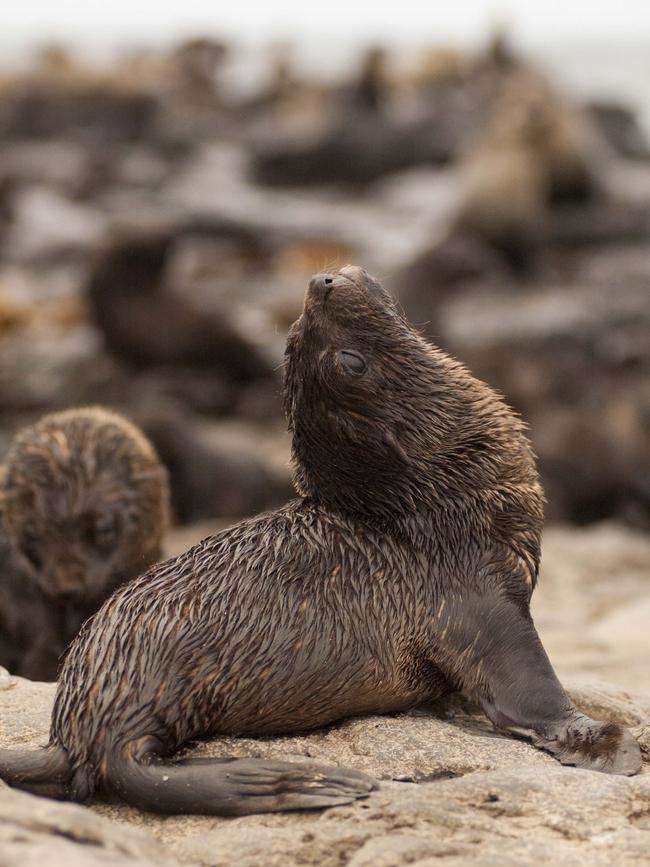Rebecca McIntosh: Phillip Island scientist blames fishing, climate change for seal population decline
A Phillip Island scientist says the Australian fur seal population fell by 4700 pups since 2007, according to new census findings.

Bass Coast News
Don't miss out on the headlines from Bass Coast News. Followed categories will be added to My News.
A Phillip Island scientist says the Australian fur seal population fell by 4700 pups since 2007, according to new census findings.
A 20-year census led by Phillip Island Nature Parks marine scientist, Rebecca McIntosh, found disease, fishing nets, marine plastic and climate change had drastically impacted the species.
Her research found the colony on Seal Rocks, off Phillip Island, had fallen by one third.
Ms McIntosh said that could be a result of colonies migrating south to cooler water as a result of climate change.
“There may be several contributing factors including disease and pollutants affecting pup birthrates and survival, as well as seals dying in fishing nets and marine plastic entanglements,“ she said.
“Then there are climate change impacts such as storm inundation of breeding areas and changes in the food chain of southeast Australia – a hot spot of ocean warming – which may also be affecting the seals.”


The five-yearly census of Australian fur seals began 20 years ago to better understand their populations following over-harvesting in the 1800s almost drove them to extinction.
There were 21,600 pups recorded in 2007, but numbers dropped to 17,500 by the next census in 2013.
The 2017 census reported a further decline to 16,900 pups in 2017.
Ms McIntosh said the Bass Strait ecosystems had been affected by industrialised fishing which had also reduced the species’ biomass and diversity.
“Engagement between industry, scientists, managers, and First Nations people, will be critical to rethink ecosystem function, adaptively respond to change, and offset the negative influence of shifting baseline syndrome,” her report said.
Nature Parks researchers will continue to investigate whether the seals are impacted by boat and jet ski disturbances, ecotoxicity, pollutants and marine plastics.
“As top predators, fur seals are excellent ecosystem sentinels – if they are healthy, then in a general sense, the ecosystem underneath them can be assumed to be doing well. So all of this work is not just vital to our seals, but to our entire ecosystem,” Ms McIntosh said.
“We hope to conserve the fur seals and the penguins, with flow on benefits to the other species and the people that share the ocean with them.”
The census data will be used to inform future planning, including fisheries and government emergency responses.



